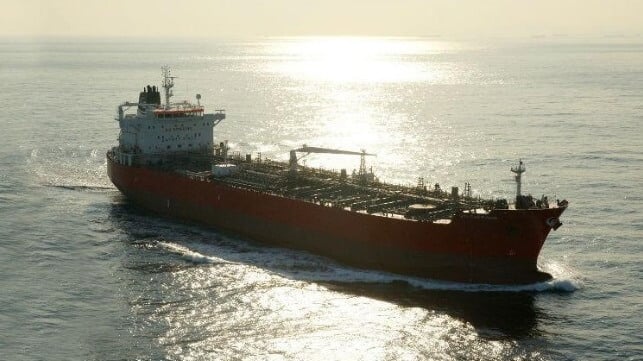EU Launches “Hard-Biting Sanctions” Targeting Russia’s Oil, Gas and Tankers

Saying that “Russia’s goal is not peace,” and frustrated by the Trump administration’s lack of action on sanctions against Russia, the European Union outlined what it is calling “hard-biting sanctions” for its 18th package since the invasion of Ukraine. European Commission President Ursula von der Leyen said the EU would move ahead with deep sanctions on oil, gas, energy products, shadow tankers, and the banking sector “because strength is the only language that Russia will understand.”
Outlining the new package that will be presented to member states for a vote, von der Leyen asserted that the sanctions are deeply affecting the Russian economy. She said that Russia's oil and gas revenues have already fallen by almost 80 percent while interest rates are rising and the price for importing technologies and other goods have skyrocketed. Oil exports she admitted however still represent one-third of Russia's government revenues.
The EU has already voted to end Russian gas imports and now it is proposing to officially ban transactions related to the Nord Stream 1 and Nord Stream 2 gas pipelines. While both remain closed since the explosion in September 2022, von der Leyen said, “There is no return to the past.”
They are also introducing a ban on the import of refined products based on Russian crude oil. In this way, the EU says it will prevent some of the Russian crude oil from reaching the EU market through the “back door.”
The EU has already listed 342 tankers that it says are in the shadow fleet and violating the G7 Price cap and other rules on moving Russian oil. The new package lists an additional 77 tankers as they continue to seek to stop the vessels that undertake the exports.
Further, the EU is joining with the UK which has already called for lowering the price cap imposed by the G7 for the sale of Russian oil. As the price of crude has fallen the current $60 cap has become less effective. Von der Leyen announced the EU will push the G7 at the upcoming meetings in Canada to lower the cap to $45 per barrel.
The other focus of the new sanctions is on the banking and finance sector. It proposed a wide series of actions including a full transaction ban and adding 22 more banks to the sanctions. It also calls for a transaction ban on financial operators in third countries that finance trade to Russia in circumvention of sanctions, and further export bans worth more than 2.5 billion euros targeting raw materials used in industry including machinery, metals, plastics, and chemicals. Finally, they also propose to apply the sanctions to 22 additional Russian and foreign companies providing direct or indirect support to Russia's military and industrial complex.

that matters most
Get the latest maritime news delivered to your inbox daily.
“We need a real ceasefire, and Russia has to come to the negotiating table with a serious proposal,” said von der Leyen. “As it is up to today not showing willingness to achieve peace, we will step up pressure on Russia, including through further robust sanctions.”
The Trump administration has said it would consider additional sanctions while waving the potential of rolling back sanctions as an enticement to achieve a ceasefire and a negotiated end to the war. Donald Trump has spoken of the potential of more sanctions, but after the most recent peace talks failed, he said sometimes you just have to let both sides fight it out a while longer.
